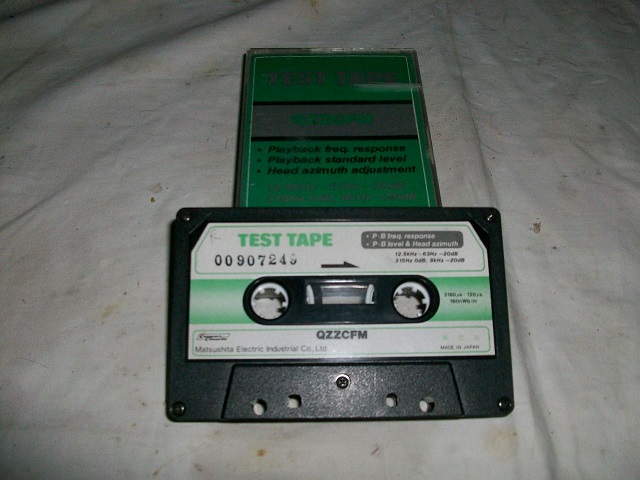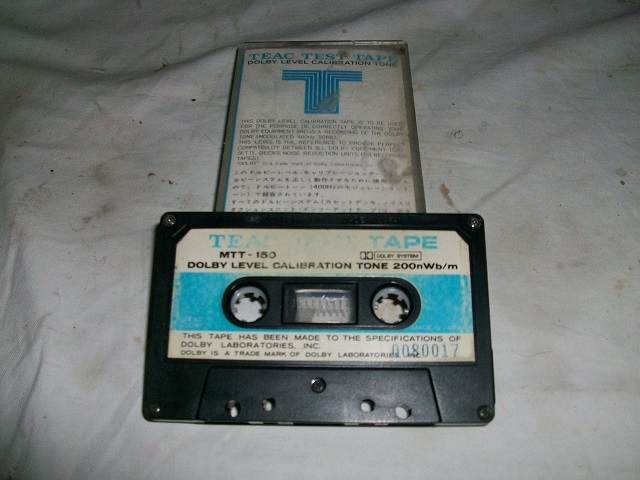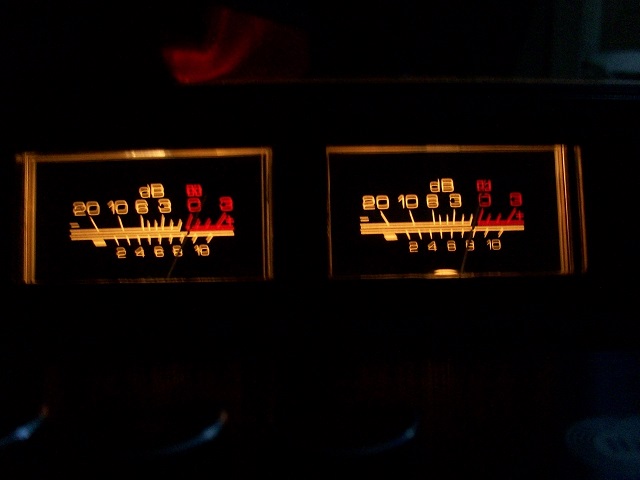Hello everyone,
before moving to the level calibration, I noticed a peculiarity of automatic recording level function ( Alc ). This tape deck has the 0 db VU calibrated to + 3dB conventional reference. The calibration shall be performed at the play level of 580mv on pin 7 of the Dolby Ic for 0db meter reading. This setting must not be so done with test cassette 0db reference conventional (160nw/m, photo 1) but with Dolby cassette test ( which means + 3dB; 200nw/m, photo 2).
Reference cassette test tape:
Photo1 :

Photo2 :

During recording, the ALC level is automatically set to a peak - 3db Vu meter reading (which means 0db conventional). But with this reference, the recording level is very low because music peaks are reached only sometimes. For this the medium rec level is low, around -6db ( which means 50% conventional reference value ).
For this reason too, you notice a difference going from listening to any source to a tape you just recorded.
Now let's see the recording distortion factor: in this original version, as measured during my tests , the distortion factor is 2.6% with chrome tape.
Yes, there is opportunity for improvement, increasing the auto - rec level without raising too much distortion factor.
So, i thought i'd better recording by changing the ALC circuit. The resistor R2497 (100K ohm, foto 3a - physically / 3b - diagram) can be varied to 56K ohm / 47K ohm to push the vu meter needle to 0db vu. Foto 4.
In other hand, this setting would be the same used in the manual recording mode.
Photo 3a :

Photo 3b :

Photo 4 :

In this way the peaks of registration will be around 0db Vu (+ 3db conventional ), as it should be. The distortion measured in this way rises to 3.3% with chrome cassette, which is a very good value, typical of high level stereo tape decks.
In this way the different listening level from any source compared to a tape just recorded is also reduced.
Since this change does not degrade the quality of the recording and will not damage the circuit, i recommend it to everyone who uses the ALC, hoping to do something useful.
Arrivederci a presto ! Giuseppe
before moving to the level calibration, I noticed a peculiarity of automatic recording level function ( Alc ). This tape deck has the 0 db VU calibrated to + 3dB conventional reference. The calibration shall be performed at the play level of 580mv on pin 7 of the Dolby Ic for 0db meter reading. This setting must not be so done with test cassette 0db reference conventional (160nw/m, photo 1) but with Dolby cassette test ( which means + 3dB; 200nw/m, photo 2).
Reference cassette test tape:
Photo1 :
Photo2 :
During recording, the ALC level is automatically set to a peak - 3db Vu meter reading (which means 0db conventional). But with this reference, the recording level is very low because music peaks are reached only sometimes. For this the medium rec level is low, around -6db ( which means 50% conventional reference value ).
For this reason too, you notice a difference going from listening to any source to a tape you just recorded.
Now let's see the recording distortion factor: in this original version, as measured during my tests , the distortion factor is 2.6% with chrome tape.
Yes, there is opportunity for improvement, increasing the auto - rec level without raising too much distortion factor.
So, i thought i'd better recording by changing the ALC circuit. The resistor R2497 (100K ohm, foto 3a - physically / 3b - diagram) can be varied to 56K ohm / 47K ohm to push the vu meter needle to 0db vu. Foto 4.
In other hand, this setting would be the same used in the manual recording mode.
Photo 3a :
Photo 3b :

Photo 4 :
In this way the peaks of registration will be around 0db Vu (+ 3db conventional ), as it should be. The distortion measured in this way rises to 3.3% with chrome cassette, which is a very good value, typical of high level stereo tape decks.
In this way the different listening level from any source compared to a tape just recorded is also reduced.
Since this change does not degrade the quality of the recording and will not damage the circuit, i recommend it to everyone who uses the ALC, hoping to do something useful.
Arrivederci a presto ! Giuseppe
